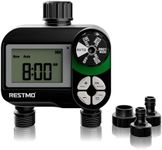Buying Guide for the Best Watering Timers
Choosing the right watering timer can make a significant difference in maintaining a healthy garden or lawn. A watering timer automates the process of watering your plants, ensuring they get the right amount of water at the right time. This not only saves you time but also conserves water and promotes better plant health. When selecting a watering timer, consider the following key specifications to find the best fit for your needs.Number of ZonesThe number of zones refers to how many separate areas or sections of your garden the timer can control. This is important because different plants may have different watering needs. If you have a small garden or a single type of plant, a single-zone timer may suffice. For larger gardens with diverse plant types, a multi-zone timer (2, 4, 6, or more zones) allows you to customize the watering schedule for each area. Choose a timer with enough zones to cover all the distinct areas of your garden.
Programming FlexibilityProgramming flexibility refers to how customizable the watering schedules are. This includes the ability to set different start times, durations, and days of the week for watering. More advanced timers offer features like multiple start times per day, seasonal adjustments, and rain delay options. If you have specific watering needs or want to optimize water usage, look for a timer with high programming flexibility. For simpler needs, a basic timer with fewer programming options may be sufficient.
Power SourceWatering timers can be powered by batteries, solar energy, or a direct electrical connection. Battery-powered timers are easy to install and portable, making them ideal for smaller setups or areas without easy access to electricity. Solar-powered timers are eco-friendly and reduce the need for frequent battery changes. Electrically powered timers are reliable for larger or more permanent installations but require a nearby power source. Choose the power source that best fits your garden setup and convenience.
Durability and Weather ResistanceDurability and weather resistance are crucial because the timer will be exposed to outdoor conditions. Look for timers made from high-quality, weather-resistant materials that can withstand rain, sun, and temperature fluctuations. A durable timer will last longer and require less maintenance. If you live in an area with harsh weather conditions, prioritize timers with higher durability ratings.
Ease of UseEase of use refers to how user-friendly the timer is. This includes the simplicity of the interface, the clarity of the instructions, and the ease of installation. A timer with a clear display, intuitive controls, and straightforward programming will save you time and frustration. If you are not tech-savvy, look for a timer with basic controls and easy-to-follow instructions. For more advanced users, a timer with additional features and customization options may be more appealing.
Connectivity and Smart FeaturesSome modern watering timers come with connectivity options like Wi-Fi or Bluetooth, allowing you to control and monitor your watering schedule remotely via a smartphone app. These smart features can provide real-time updates, weather-based adjustments, and integration with other smart home devices. If you value convenience and want to optimize your watering schedule based on real-time data, consider a timer with smart connectivity. For those who prefer a more hands-on approach, a traditional timer without connectivity may be sufficient.
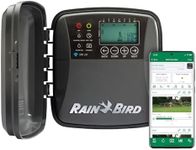
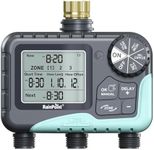

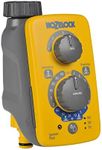
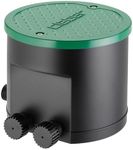

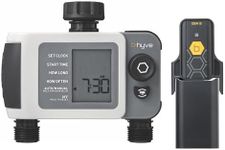
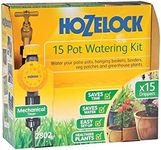
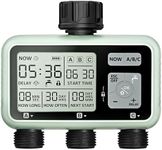

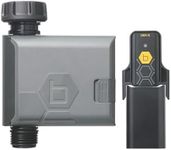
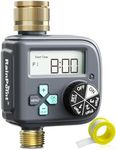
![HOZELOCK - Watering Timer Sensor Controller : Automatic and Easy Watering With Its Light Sensor, Daily Watering At Sunrise And/or Sunset, Manual Watering Function [2212 0000]](https://images-proxy.bestreviews.guide/pB1dXLt1GxZ4p8pqwohQCbX6ges=/0x150/https://m.media-amazon.com/images/I/41EfcWe0S1L._AC_CX679_.jpg)

